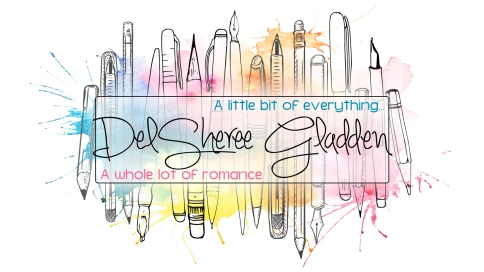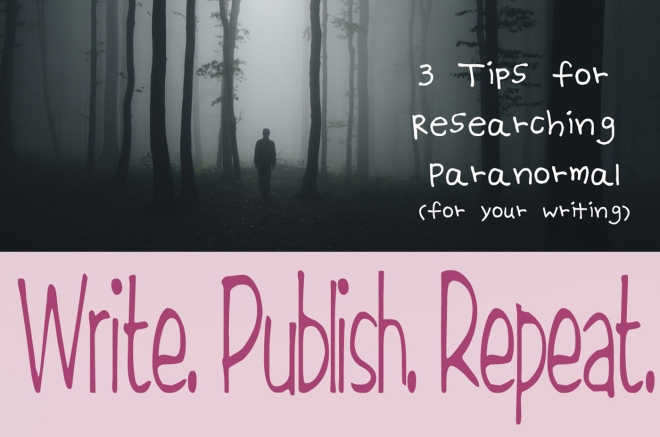What is the most unusual profession a character has had from a book you’ve read?
 I asked this question to a group of writers I work with and got some interesting answers, from a magical beast researcher to professional occult consultant to uprooting human babies grown in soil.
I asked this question to a group of writers I work with and got some interesting answers, from a magical beast researcher to professional occult consultant to uprooting human babies grown in soil.
It was the start of a discussion on how backstory influences a character and how a well-developed backstory makes a stronger and more interesting character.
There are several important areas of backstory to consider:
- Convictions/Beliefs: political, social, economic views; theories on life; HOW did they acquire these?
- Education: formal/non-formal, location, type of school
- Family/Friends: be detailed, include those not active in story (may be later)
- Geography: detail environment that helped shape character (climate, socio-economic, culture, history)
- Key Past Events: events that shaped personality, fears, beliefs, etc.
- Past Success/Failures: track record, worst memories, reasons behind fears, etc.
- Phobias: reason behind avoidance or push to succeed, big or small
- Profession: $$, love it/hate it?, biding time, stepping stone, dream job, etc.
- Quirks: what makes them unique physically, psychologically, socially (Forest Gump, A Beautiful Mind)
- Value System: define their version of right and wrong; what do they value in themselves/others, etc.
- Talents/Skills: are they used/abandoned, many/few, etc.
- Time Period: make it accurate, have a good reason for choosing it
Any backstory elements you choose to use should add something to the character and story. Superfluous details aren’t needed.
 If you find you’re struggling with developing a strong backstory or aren’t sure how to incorporate the backstory elements you’ve chosen in a meaningful way, here’s a great exercise to help you delve a little deeper:
If you find you’re struggling with developing a strong backstory or aren’t sure how to incorporate the backstory elements you’ve chosen in a meaningful way, here’s a great exercise to help you delve a little deeper:
- Pick ONE element of backstory to develop: Moved constantly due to financial instability, as adult hoards money, intends to live in same house forever
- Choose THREE ways that element manifested in the PAST: Craves stability in every aspect of life, won’t change despite bad situation, has witnessed crimes in neighborhood
- Choose THREE ways this manifests in the PRESENT: House needs constant repair, poor job leaves no money for repairs, hides from neighbors
One last bit of advice on backstory is to DO THE RESEARCH
Whatever professional or educational background you choose should be realistic.
It takes 20 years of service to retire from the military. There are no 25-year-old retired ex-Navy SEALs, and it’s highly unlikely that they’re billionaires from their service alone. Electing not to re-enlist isn’t the same as retiring.
Becoming a psychiatrist takes 12 years on average (and includes going to medical school), and it takes about 10 years to become a licensed clinical psychologist, and doctor patient relationships would ruin a career.
Of course, lines can be pushed and crossed in fiction at times, but it’s important to be as realistic as possible or readers won’t be able to suspend their belief enough to enjoy the story.


 Sometimes, reading is like this for me. It’s not always easy to turn off the writer part of my brain and just read to enjoy. All my writing pet peeves poke at me while I read, and make the experience less fun. Then I have to remind myself that some other writer is reading my books having the same thoughts!
Sometimes, reading is like this for me. It’s not always easy to turn off the writer part of my brain and just read to enjoy. All my writing pet peeves poke at me while I read, and make the experience less fun. Then I have to remind myself that some other writer is reading my books having the same thoughts! I’ve also been reading JM Barrie’s “Peter Pan” (the original book) which, let me tell you, is far removed from the Disney version, or any other version I’ve ever seen. It’s bizarre and really not something a kid would understand or probably be interested by. I have a pretty good vocabulary and love British fiction, but I’m still looking up words and trying to figure out what Barrie is trying to get at half the time.
I’ve also been reading JM Barrie’s “Peter Pan” (the original book) which, let me tell you, is far removed from the Disney version, or any other version I’ve ever seen. It’s bizarre and really not something a kid would understand or probably be interested by. I have a pretty good vocabulary and love British fiction, but I’m still looking up words and trying to figure out what Barrie is trying to get at half the time. How does price affect your decision making?
How does price affect your decision making? Another reason I choose to offer free books is because many of my books are Young Adult titles. Teens don’t have a lot of purchasing power in many cases, especially in non-US markets. They can download free books at the click of a button, or read on Wattpad with no restrictions. Many teens need permission and a credit card number to purchase ebooks. That means convincing their parents the purchase is worth the money. That gets easier when they can say they’ve already read the first book and loved it.
Another reason I choose to offer free books is because many of my books are Young Adult titles. Teens don’t have a lot of purchasing power in many cases, especially in non-US markets. They can download free books at the click of a button, or read on Wattpad with no restrictions. Many teens need permission and a credit card number to purchase ebooks. That means convincing their parents the purchase is worth the money. That gets easier when they can say they’ve already read the first book and loved it.
 Do you need an agent?
Do you need an agent?